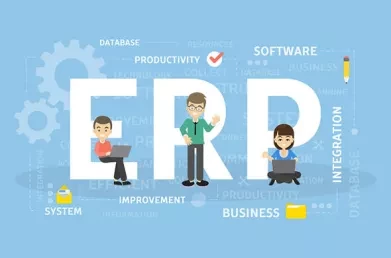ERP Application Testing
ERP Applications are generally configured to map to highly integrated and often complex business processes. Each configured ERP application is unique; therefore each system must be tested thoroughly before going live.
Such testing can include:
- Testing the individual components (Unit Testing),
- Testing the entire business process from end to end,
- Integration testing to other applications,
- Performance testing,
- User Acceptance Testing on behalf of the end user.
The identification of the test scope is a key activity that determines the time and effort required for the testing process. There are different reasons for embarking on a testing process including:
- New ERP Implementation
- Changes to an existing release of the ERP Application
- Configuration changes
- Custom Developments
- New/Amended Interfaces
- New Releases to the ERP Application
- Legal Changes
- Functional Improvements

Each type of change necessitates a different approach to testing.
In an ERP implementation or upgrade the ultimate responsibility for testing resides with the business users and not the ERP provider or IT department. The business user must verify that the system works as a whole and is functioning correctly.
Testing should be considered and planned early in the project in order to fit into the overall project plan. Once the test scope has been identified, the tests can be planned. All tests should be aligned to the business processes, and a risk assessment should be executed in order to determine the potential effect of change(s) on business processes and hence ensure that adequate testing is proposed to minimise the potential for any disruption to the business.
During the build process, Software Developers / Application Configurators from the ERP vendor or internal IT Function, make the changes to the ERP system and perform the initial unit tests which cover individual transactions or functional modules at the lowest level. Once the functionality is delivered to the project team a series of functional and end-to end tests are carried out to establish that the system supports the business processes as agreed in the design phase of the project. As ERP is an integrated system, one important point to note for functional and end-to-end testing is that the sequences of tests cases should be planned, since most process steps rely on data from the preceding steps.
Testing should be carried out on a dedicated test system, which should resemble the Production System but with the new changes incorporated. This can present organisations with challenges as it is not always easy to copy the Production environment for many reasons including volume, sensitivity of data etc. However, if testing is to be effective then the data must be reflective of what is in the Production environment.
The testing of ERP systems is a key activity that must be executed in a structured and thorough manner, irrespective of the size of the project, in order to minimize risk to the business.
This blog was written by Bernie Callaghan, Principal Consultant. If you would like further information on ERP Application Testing or any other aspects of ERP please send an e-mail to Bernie Callaghan.


